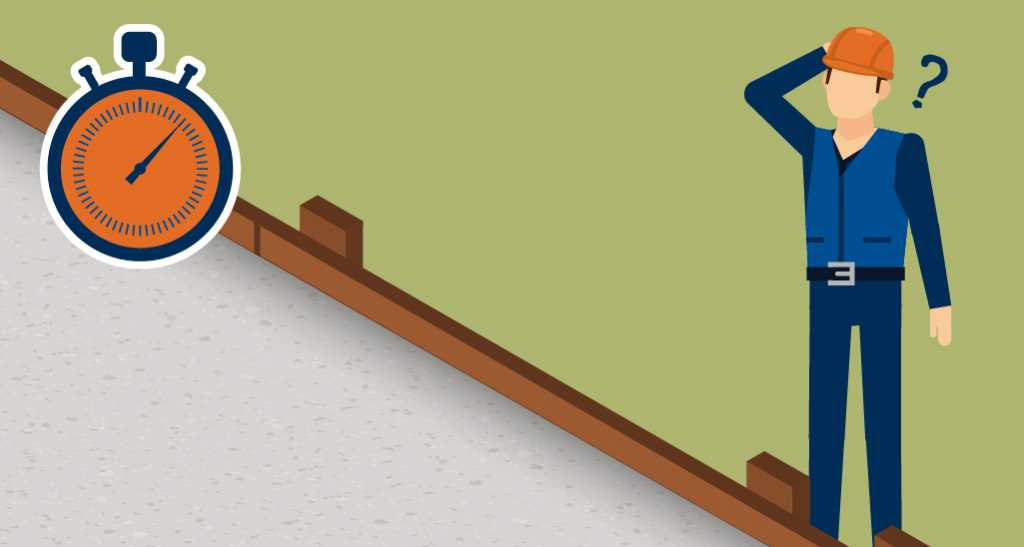How Long Does Concrete Take to Cure?
Concrete curing is the method of maintaining appropriate moisture levels in a concrete mix after it has been poured.
A satisfactory curing process allows the concrete to reach its maximum strength and reduces the risk of cracking and other issues. But how long does concrete take to cure? The team at Total Concrete have the answers.
Usually, concrete takes around 28 days to cure after it has been placed. A week after it has been poured into place, the concrete should theoretically be at 70% of its maximum strength.

What affects concrete curing time?
One of the most important parts of the concrete curing process is the moisture level of the concrete. Too little moisture, and the curing process will not be thorough enough, which means the concrete will be weak. If there’s too much moisture, then the top layer of the concrete will weaken, which can lead to unsightly flaking.
Weather
Warmer climates outside will also speed up the drying of concrete, which is why it’s important to keep the concrete moist using artificial methods too, such as regular application of water. To find out more about pouting concrete in cold weather, click here.
Accelerants
The type of mix used will have a significant impact on the length of the concrete curing time. For jobs where time is at a premium, and the concrete application needs to be ready for use as soon as possible, accelerants may be required to speed up the curing process. Whilst the overall strength of concrete that uses accelerants will be weaker, it will still meet the required strength levels.
Protecting your freshly laid concrete
No matter the type of concrete you use or what you’re using it for, there are several methods of protection that you can use to ensure the integrity of the curing process. Using plastic sheeting, for example, is a simple and effective method for protecting concrete during the curing process.
Aside from plastic sheeting, you can also use specialist oils or compounds that work to seal the surface and retain its moisture levels. For smaller areas of concrete, spraying the surface with water at regular intervals will help retain the moisture in the concrete.
There’s also the option of a ‘dam’ wall – building a wall of sand around the curing concrete and then flooding the area, keeping a constant level of moisture.
Weather effects
Be sure to keep an eye on the weather forecasts for the periods where your concrete is curing. If it’s due to be hot, make sure to keep up the hydration of the concrete. If it’s going to be rainy, make sure to cover the concrete to avoid excessive moisture getting into the mix.
Winter can be a dangerous time for concrete due to the freeze-thaw problem. When water freezes, it expands, and if this happens to the water within concrete, it can result in cracks in the concrete.
If you’re prepared for the elements and you know how to take care of your concrete solution, you can enjoy a seamless, hassle-free curing process.
Total Concrete are leading providers of concrete services for domestic and commercial customers alike. For more information, please contact us today and we’ll be more than happy to help you with anything you need.
Place your order today by calling 0800 859 5371 !
 Trade Zone
Trade Zone
